 It was good to attend the first day of the APSA Workshop on Religion and Politics After Marriage Equality at Macquarie University this week - although I was unable due to illnes to be at the second day - with many thanks to Dr Eleneie Poulos and Kate Gleeson for putting together such a brilliant program, and to all the other speakers for sharing their insights. Much to think about on this topic with a new federal government. My own paper - 'On climbing out from under the bus: queer faith futures in a cisgender world' can be read here
0 Comments
As leading organisations representing and advocating with LGBTIQ+ People of Faith and People of Faith who support LGBTIQ+ members of our communities, we urge that the current Religious Discrimination Bill be withdrawn from Federal Parliament and a genuine participative process be established to enable widely-agreed protective, not persecuting, rights for all. As it stands, the Bill can only enflame and enable further religious-based repression, without addressing the most pressing issues of religious concern, which impact upon marginalised people like ourselves.
So many of members of our religious communities are victims of religious-institution-based abuse and these experiences of abuse are a significant driver of our desire to see real safeguards for people of faith and all Australians, so that we are all able to live out our religious beliefs and other convictions without experiencing harm in our community places, where there should be safe places for all Australians. We have seen (not least in the Royal Commission into Institutional Responses to Child Abuse) how easily that safety can be lost - and how easily the true religious values of church or religious institutions are lost - when leaders exercise power without scrutiny and accountability. As LGBTIQ+ People of Faith, and People of Faith who support our LGBTIQ+ members, our participation in religious bodies takes many forms, but one central aspect is to challenge the self-serving actions of institutional leadership, and to create and push for checks and balances to the abuses of power and political influence in the hierarchies of religious bodies. We are concerned that this Bill would further embolden those who currently wield so much institutional power, to use this power to the detriment of ordinary People of Faith in religious institutions and schools, who find themselves the target of harassment and bullying for their sex, ability/disability, marital status, sexual orientation or gender identity - ordinary People of Faith who are there in every congregation and school, and who ask only to be accepted and supported in their faith journeys.. This Bill, as currently framed, would make it extraordinarily difficult for ordinary people of faith to experience this safety and acceptance; it would make it difficult for us to hold our leaders to account. LGBTIQA+ people are to be found in every faith community, and have particular need for understanding and support in contexts where they have historically been abused, misunderstood and scapegoated. LGBTIQA+ People of Faith don’t just cease to exist because a particular religious faction refuses to acknowledge their presence. LGBTIQ+ People of Faith and People of Faith who support LGBTIQ+ members of our communities refuse to stop existing simply because an institution would prefer us not to exist. We are a part of our faith communities, and that we continue to offer service to our faith and our religious institutions. We ask that our basic human rights to be recognised and those of all other vulnerable people whose lives are at threat from this legislation. Signatories: Australian Catholics for Equality Equal Voices Fellowship of Metropolitan Community Churches Australia Progressive Christian Voice Rainbodhi LGBTQIA+ Buddhist Community Rainbow Catholic InterAgency for Ministry Spark Church Sydney Queer Muslims Uniting Network 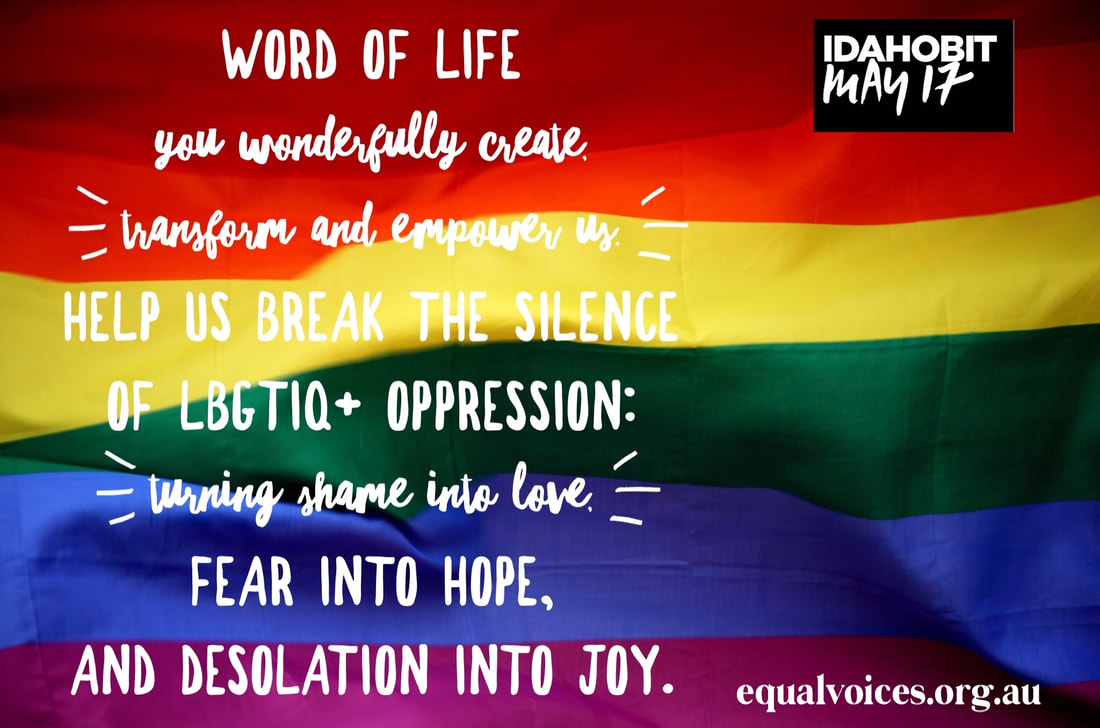 I first formally joined the (UK) Lesbian and Gay Christian Movement in 1990, the year that the World Health Organisation removed homosexuality from the Classification of Diseases and Related Health Problems, and IDAHOBIT - the International Day Against Homophobia, Biphobia, Interphobia & Transphobia - began. May 17 (IDAHOBIT) marks the anniversary of that significant WHO change, and since then considerable advances have been made by LGBTIQ people across the world and in many key sectors of life. The original gay and lesbian focus has also been widened and deepened to acknowledge the rich diversity of human sexuality and gender: IDAHOBIT thus started as IDAHO, without bisexual, intersex and transgender engagement, just as the Lesbian and Gay Christian Movement, to which I still belong, has broadened as One Body One Faith. The need for IDAHOBIT is still nonetheless massively apparent, particularly in many countries of the world. Under the cover of the COVID-19 crisis, some, such as Hungary and Poland, are also moving backwards in respect and affirmation. In countries such as Australia, understanding and support of bisexual, intersex and transgender people still lags behind progress for gay and lesbian people. As the International Day reaches 30 years old however, it is also a time for appropriate celebration of remarkable positive developments in so many places and areas of life. When, and how, however will Churches, and other religious groups grow up to their own mature humanity, 'to the measure of the full stature of Christ' (as Ephesians 4.13 puts it)?...  Sometimes Parliament is seen as a soap opera. If only it were! For though it remains so white and suburban, even TV’s Neighbours has just included a transgender character. It is a positive sign of the times but makes recent political developments all the more incongruous. For whilst the wonderful Georgie Stone enlivens Erinsborough High, in politics a green light is being given to repression. Why are we rushing towards religious discrimination laws when we’ve not yet even sorted our schools issues? So the question I want to pose is this: what kind of neighbours do we want to be as Australians together? Current parliamentary discussion is failing trans people - not least those of faith - in both process and specific proposals. Hence Equal Voices calls for postponement, into at least the middle of next year, to enable genuine consultation with those who will bear the greatest cost. The proposed Religious Discrimination Bill is a move towards enshrining disturbing forms of religious privilege and segregation which can only corrode our pluralist culture... standing with Equal Voices for genuine religious freedom in the face of proposed legislation31/8/2019 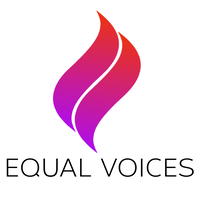 Sadly the Australian Federal Government seems intent on once more causing trouble for its LGBTIQ+ citizens. For the recently released draft Religious Discrimination Bill again reflects the militant drive of the Religious (and wider) Right rather than a desire to find a pathway to recognise all Australians as equal in law, respect and value. After the pain of the unnecessary postal survey campaign on equal marriage, there has been little let up for LGBTIQ+ Australians as some others have pursued what often seems like a deliberate vendetta. Significant elements and figures in Australia's Christian community continue to be major offenders in this, obsessed with their own narrow sectarian agendas and preservation of power and privilege. The consequence is further understandable alienation of many from religious bodies. LGBTIQ+ people of faith consequently also find ourselves further marginalised, sometimes not always finding 'safe space' within the wider LGBTIQ+ community. The Right's drive to posit the nonsense of 'God v the Gays' and a repressive 'LGBTIQ+ agenda' thus currently bears fruit. Thank God therefore for the existence of bodies such as Equal Voices, the national network of LGBTIQA+ Christians and allies, together with other LGBTIQA+ people of other faith, and partnerships with some other key LGBTIQA+ groups and leaders. Together we seek genuine freedom for all. As a member of the Equal Voices national board, I thus felt myself impelled yesterday to speak out with others in our movement about the failings of the Federal Government's approach. This follows my participation in shared advocacy with other LGBTIQA+ people (as in my speech at the Brisbane rally recently). See here below further for the words of our media release... 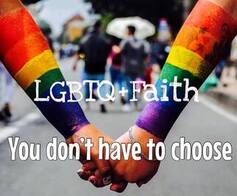 I speak today as both a proud member of our LGBTIQA+ community, and also as a dedicated person of faith, indeed as an Anglican priest. I do so, because people like me are typically erased, our lives and voices ignored. Yet we queer people of faith do exist! - and we are increasingly seeking to be visible. For our very existence gives lie to the monstrous misuse of religion for political ends. We suffer particularly profoundly from religious discrimination. We do not want religious exemptions which hurt us and others, and betray the heart of who we are. We also know that the majority of our fellow Australians of faith agree with us, as we saw in that dreadful postal survey. So we’ve tried to lobby, spoken to Government inquiries, sought to be part of desperately needed change. Yet, as queer people of faith, our rights to religious expression are seldom recognised... 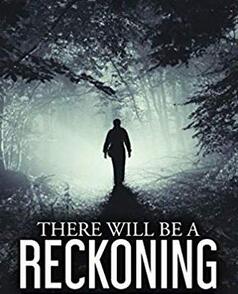 Who would have thought, in Australia in 2019, that, thanks to the insistent Tweets of a rugby player, hell would gain such attention? Hellish is certainly the result for those of us in the rainbow community. Particularly since the recent Federal election, we have been subjected to a deliberate right-wing campaign of aggression and hate, with fresh destructive impacts on our mental health and well being. This is a powerful expression of the vicious distortions of so much of today's media, and the apparent eagerness of some 'religious' groups to promote, or be used by, repulsive reaction in the name of religion. It is also a vivid reminder, both of how theological concepts can have real life consequences, including in the political sphere, and also of the need for a religious, as well as much broader, response by LGBTIQA+ people of faith. For religious-inflicted pain is indeed rife and horrendous among LGBTIQA+ people. Anger at religion as a whole is therefore, as a huge understatement, more than understandable. More moderate 'straight' religious people urgently need to recognise this and join the rainbow community as much more effective allies, with a commitment to genuine listening, deep repentance for religious-based shaming and violence, and powerful commitments to assisting in change. Yet, as it uses religion, we are also unlikely to defeat the hideous distortion that is right-wing 'religious freedom' without better theological scrutiny and the use of religious resources by LGBTIQA+ people of faith, affirmed by other parts of the rainbow community. In this, one key feature is indeed to reclaim the very idea of hell as a theological impulse towards justice for the oppressed, connected with the vision of 'a new heaven and earth' of peace and love, not as punishment of 'the other' by the rich and powerful. For God, if that world is to have reality at all, needs proclaiming as the ultimate source of transforming love in generous diversity, not as a mean tyrant picking on the marginalised. If hell is to have any real meaning, other than as a description of actual lived pain today, then it must be as a reminder that, in some ultimate sense (to use Billy Bragg's words): 'there will be a reckoning for the peddlers of hate... and a reckoning too for the politicians who left us to this fate'... 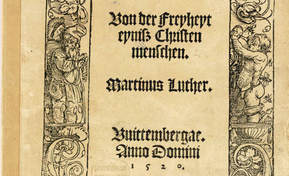 In the heat of current political issues, is it possible to find a healing ethic of religious freedom? Might a fresh look at Christian tradition help us with this? The ideological use of notions of 'religious freedom' is certainly hardly new. Judaeo-Christian history is riddled with it and their consequences. Jesus himself was famously condemned, according to John 's Gospel (11.50). since it was argued that it was better for one person to die than for the nation to be destroyed (allegedly). Other faith expressions and Christian 'heretics' have met comparable fates. Meanwhile, in many places, Jews and Christians have experienced, and continue to experience, harassment, persecution, and even outright destruction. Yet the Jewish and Christian traditions are also founded on expansive ideas of liberty, grounded in the very being of God in God-self, and on liberative myths and symbols such as Exodus from slavery, return from Exile, deliverance from sin and evil, and the in-breaking and embodiment of God's reign of justice, peace and love. These have empowered, and continue, to empower people to achieve freedom across the world. Not for nothing then did Martin Luther call his seminal work 'On Christian Freedom'. Its use highlights three typical trajectories western society has explored in relation to 'religious freedom'. Its central message however points us deeper... 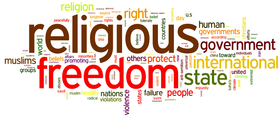 If Samuel Johnson were around today he might well feel that religion, rather than patriotism, is the last refuge of the scoundrel. It certainly seems to be an excuse, or self-justification, for all kinds of bad behaviour, as well as a source of strength and inspiration to holiness in others. Not least this is the case in regard to some leading Christian approaches to LGBTI+ people and their vigorous intent on backlash. At times horribly distorting reality, they even hijack 'religious freedom' into its opposite - i.e religious privilege - thereby further diminishing religion's positive features and making life very difficult for those very many Christians who believe and act differently. Indeed, when it comes to the current contentious battle over 'religious freedom', as both a transgender person and a Christian, I consequently frequently find part of who I am dismissed by one contending group or another. When, instead, will we recognise that the real problem are the scoundrels? Just as Samuel Johnson was not attacking patriotism as such, only a false kind of patriotism, so we do well to call out those with 'bad faith', whilst finding a fresh consensus among those genuinely seeking balance of conscience and liberty, whether we are secular or not. .. 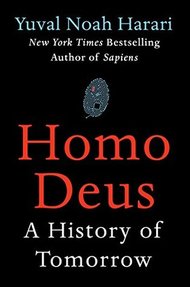 Looking into the future is notoriously difficult, as any historian knows. The most we can really do is to be as honest and perspicacious as we can about our past and present and extrapolate as best we can with tempered imagination. Yuval Noah Harari (professor of history at the Hebrew Museum in Jerusalem) does a good job of this in his recent book Homo Deus: A History of Tomorrow. It is certainly a challenging vista he opens up. Due to the speed and scale of unprecedented change, he argues that homo sapiens as we know ourselves will not exist in a hundred years. This is due to major technological shifts, particularly in biotechnology and artificial intelligence, which threaten to make religion and various forms of humanism redundant. For we appear to be at the beginning of a 'data-religion' age, in which the algorithms and a small number of their elite human 'managers' (in corporations like Google and Facebook) become increasingly dominant. Harari is not unappreciative of the past positive, as well as negative, evolutionary contribution of both religion and humanism. Religion, for example in its Christian form, was a powerful force historically in enabling human development through doctrines such as the 'imago dei' in every being, and in its earlier contributions to enabling technology, society and art. Yet its constructive role is essentially at an end, hastened by its inability to keep up, never mind engage, with today's scientific and technological drivers. Humanism, in whatever form, also appears to be very long in the tooth as an ideological bearer of the future. For example, modern democracy - a central humanist fruit - cannot operate as efficiently or inteiligently as a contemporary algorithm in working out preferences, policies and directions. Intelligence increasingly appears to be separable from consciousness, another religious and humanist core principle. In a world where death (for some) can be further postponed, what then also happens to meaning? Harari's work asks powerful questions of us. Like his previous dazzling bestseller Sapiens, Homo Deus is a product of great scholarship, crossing many disciplines, and written in lively, vivid language. Its author is no lightweight thinker. Indeed he claims to meditate for two hours a day and goes on extended retreats, whilst, being gay, he says, helps him to question received opinions. “Nothing should be taken for granted,” he has said, “even if everybody believes it.” (see further The Guardian 19 May 2017) It is thus both contemplative as well as intellectually attentive. No doubt, like other 'end of history' books, some of his contentions may be misplaced or over-exaggerated, as well as misused by others. Yet we would do well to reflect upon it, if we are at all serious about building on the fruitful aspects of humanism, in its religious or secular forms. What kind of spirituality and politics do we need in our changing bio-technological and data-intelligent world? |
AuthorJo Inkpin is an Anglican priest serving as Minister of Pitt St Uniting Church in Sydney, a trans woman, theologian & justice activist. These are some of my reflections on life, spirit, and the search for peace, justice & sustainable creation. Archives
July 2024
Categories
All
|
 RSS Feed
RSS Feed